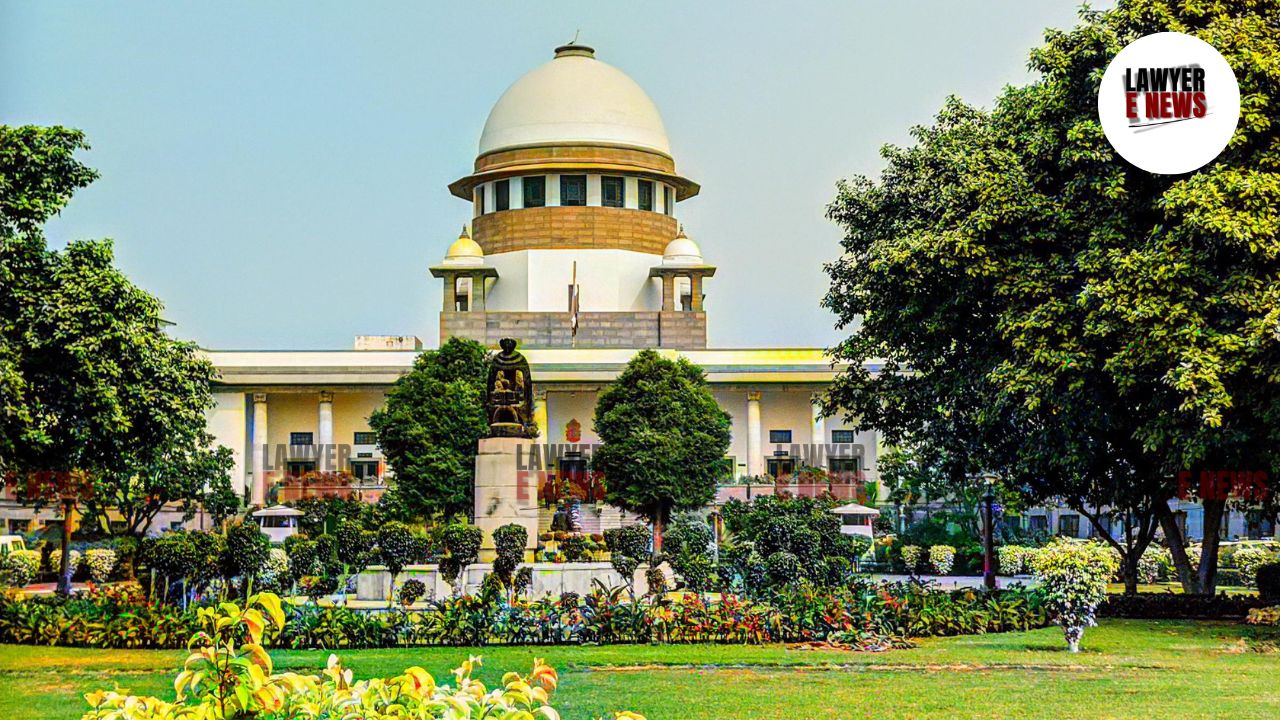-
by Admin
15 February 2026 5:35 AM



"Absolute absence of any evidence to connect the appellant with the offence under Section 498-A" - Supreme Court. On October 21, 2024, the Supreme Court of India acquitted the appellant, Yashodeep Bisanrao Vadode, who had been convicted under Section 498-A of the Indian Penal Code (IPC). The Court ruled that the conviction, initially affirmed by both the trial court and the Bombay High Court, could not be sustained due to a lack of evidence.
The case revolved around the tragic death of Renuka, the daughter of the second respondent, on April 16, 2011. The second respondent filed a First Information Report (FIR) alleging that Renuka’s husband, Rajesh Jagan Karote, and his relatives—including the appellant—had subjected her to harassment over dowry demands, leading to her unnatural death. The appellant, Yashodeep Bisanrao Vadode, was accused under Sections 498-A (cruelty by husband or relatives), 304-B (dowry death), 306 (abetment of suicide), and 406 (criminal breach of trust) read with Section 34 of the IPC.
The Sessions Court, after a joint trial involving multiple accused, acquitted the appellant of all charges except under Section 498-A. The High Court of Bombay partially upheld the trial court's decision, affirming his conviction under Section 498-A but reducing the sentence to time already served in prison. The appellant was aggrieved, particularly due to the professional repercussions of his conviction, including termination from his job.
The key issue before the Supreme Court was whether the appellant could be held guilty under Section 498-A, IPC, based on the evidence presented. Section 498-A deals with cruelty by a husband or his relatives towards a woman, which may include physical or mental harassment with a view to coercing her to meet unlawful demands for dowry.
The appellant contended that his marriage to the deceased’s sister-in-law, Savita, occurred only on October 26, 2010—just five and a half months before Renuka's death. He argued that he was not a relative of the deceased’s husband during the majority of the period in which the alleged dowry demands and harassment took place. Furthermore, no specific accusations were made against him, and there was a conspicuous absence of evidence tying him to any act of cruelty or harassment.
The Supreme Court noted these critical points, emphasizing the lack of material evidence against the appellant. The Court observed:
"A scanning of the impugned judgment would reveal that even after detailed discussion of the oral testimonies of the prosecution witnesses nothing specific was unearthed against the appellant herein, by both the trial Court and the High Court."
Additionally, the appellant argued that the acquittal of other co-accused, such as Harinarayan Raja Ram Kurane (accused No.4) and Kavita Harinarayan Kurane (accused No.5), should extend to him as well, given the similar nature of the allegations. The Court also highlighted the generalized accusations against the appellant, devoid of any substantive evidence.
The Supreme Court expressed concerns over the phenomenon of over-implication in dowry-related cases, citing its earlier judgment in Preeti Gupta v. State of Jharkhand (2010), which cautioned against exaggerated allegations in dowry cases. The Court reiterated the need for caution when dealing with cases of alleged dowry harassment, to prevent the wrongful conviction of innocent individuals.
"The finding of guilt against the appellant by the courts below for the offence under Section 498-A, IPC, with the aid of Section 34, IPC, is absolutely perverse in view of the absolute absence of any evidence against him to connect him with the said offence in any manner."
The Court acquitted Yashodeep Bisanrao Vadode, holding that there was no "scintilla of evidence" against him. The appellant was discharged from all charges under Section 498-A, IPC.
The Supreme Court's decision underscores the importance of evidence in dowry-related cases and the necessity of judicial caution to avoid over-implication. The judgment sets a precedent for careful scrutiny in such cases, ensuring that baseless accusations do not lead to wrongful convictions.
Date of Decision: October 21, 2024
Yashodeep Bisanrao Vadode vs. The State of Maharashtra & Anr.
